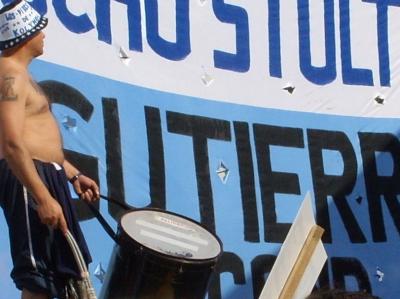As Congress ponders, the protagonists take to the streets

Who said that democracy is carried out exclusively within congressional walls, by that special breed called politicians? In Argentina the street is also the place where issues are debated. Perhaps not as coldly, not with such long winded speeches.
That’s what happened yesterday. The government probably made a big mistake when it tried to impose a resolution increasing export duties for grains. It should have studied the question a bit more thoroughly. It should have called for an open debate on the issue.It should have contemplated the effect of the measure on small grain producers, taken into account the difference in soils from one area to the next. Sure of itself, it just went ahead...until in ran into and amazingly complex stumbling block.
If soybean on the international market has become a bonanza, why not ask for more taxes to pay for social programs, the foreign debt, and, well for those things that opponents call pocketing the people’s money. (Not only now, rarely have Argentines believed the sincerity of their rulers). Also: what better way to prevent the soybeanization of the country? Indigenous groups and small farmers complain that the big corporations have invaded native forests, and the use of pesticides has begun to wreck havoc with the environment.
But the traditional "Rural Society" wasn’t willing to pay a cent more. Very rapidly they got the support of small producers, and middle class residents in small rural towns--who depend on agricultural activity for their well being. So the countryside began building up its own arguments:
--The high rate of export taxes (varying from around 50% to nearly 90% according to international prices) would drive them out of business, they said, and destroy the country’s traditional position as an agricultural exporter.
--The taxes would be and are all absorbed by the national government to subsidize the unemployed or fill up other black holes in the economy--rather than returning to the provincial localities.
--It would be better to erect a progressive profit tax, stimulating the small producers and inviting the rich to help the less fortunate. (This avoids the touchy question of how exactly to impose and collect such a tax, not very easy in Argentina)
So, farm entities have been blocking roads and resorting to diverse means of protest over the past 100 days or so. The government, under strong pressure, finally agreed to take the issue to Congress. Today it will be passed or rejected in the Senate.
A defeat would be a strong blow for government supporters. The agrarian protesters insist that they will continue direct action, should the measure be approved. In any event, the whole question will come under review again before the end of the year.
What the country certainly needs is a complete review of its agricultural policies and a reform that sets the limits for diverse kinds of activities in the very diverse provinces.
Curiously enough, the numerous leftwing groups divided themselves between those such as Maoists and some socialists and picketeers, who supported the farm protesters, and the Communists and others who sided with the government, in defense of what they considered to be a rightwing pinzer movement. The Trotskyists, as usual, went their own way, not supporting either side. Not very well hidden from view was the traditional anti-peronism (latent in the rural upper classes) and an unmentioned but clear questioning of the administrative ability of Cristina Kirchner, the country’s first female president.
0 comentarios